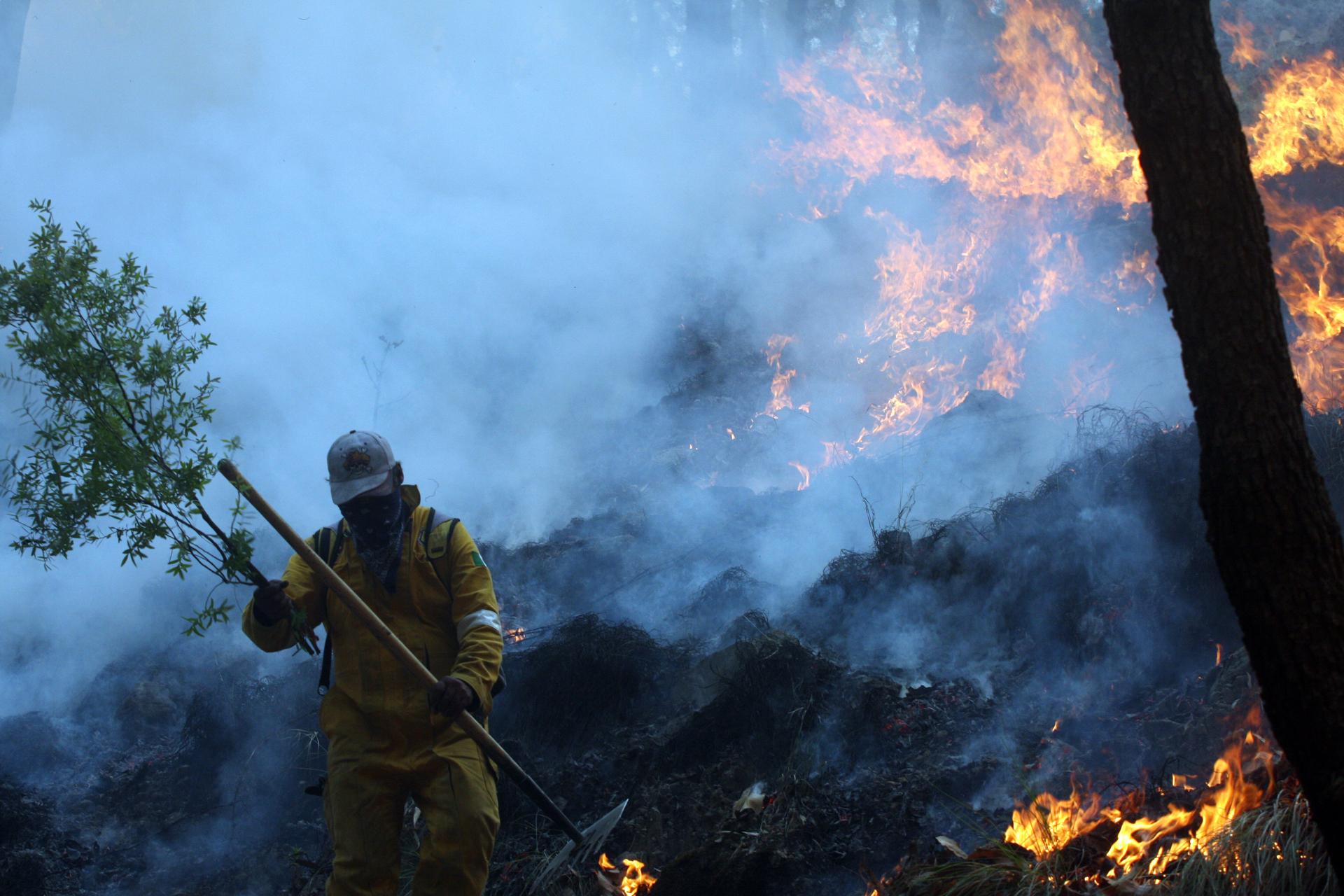Climate change will produce more wildfires in the US
Wildfires like the one seen here in ‘La Primavera’ forest in Guadalajara, Mexico, will continue to rise as climate change continues.
Wildfires will become more frequent in North America and most of Europe by the year 2100, according to new report by researchers at UC Berkeley.
The report published in the journal Ecosphere, a publication of the Ecological Society of America, found that wildfires will increase in many temperate zones due to rising temperatures, however fire risk may decrease around the Equator, especially in tropical rainforests, because of increased rainfall, according to Reuters.
"The speed and extent to which some of these changes may happen is surprising. These abrupt changes in fire patterns not only affects people's livelihoods, but also they add stress to native plants and animals that are already struggling to adapt to habitat loss," lead author Max Moritz of the University of California-Berkeley, said in a statement.
More from GlobalPost: Massive wildfires force evacuations in Colorado, New Mexico
Katharine Hayhoe, director of the Climate Science Center at Texas Tech and co-author of the study, told Newswise their research was different from previous wildfire research because other studies only focused on specific regions.
"Our study is unique in that we build a forecast for fire based upon consistent projections across 16 different climate models combined with satellite data, which gives a global perspective on recent fire patterns and their relationship to climate," Hayhoe said.
In the group's press release, Hayhoe explained the researchers used rigorous testing to prove their outlook to be correct.
Hayhoe added, “What is clear is that the choices we are making as a society right now and in the next few decades will determine what Earth’s climate will look like over this century and beyond.”
The story you just read is accessible and free to all because thousands of listeners and readers contribute to our nonprofit newsroom. We go deep to bring you the human-centered international reporting that you know you can trust. To do this work and to do it well, we rely on the support of our listeners. If you appreciated our coverage this year, if there was a story that made you pause or a song that moved you, would you consider making a gift to sustain our work through 2024 and beyond?
